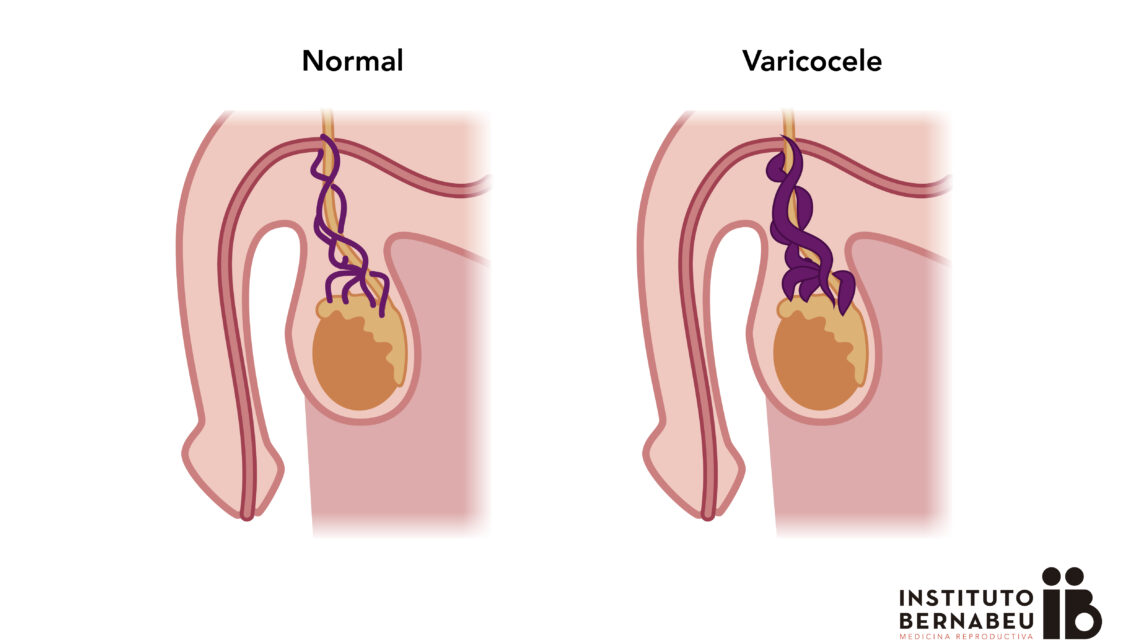
Varicocele and Infertility
Varicocele is the swelling of the veins that drains the blood from the testicles. Incidence in general population is considered to be between 4,4 and 22,6 %. This incidence is higher in males with infertility (30 – 40%) and it’s the most frequent alteration found in these cases.
Its symptoms are varied:
- Testicle veins swelling and twisting.
- Pain and discomfort in the testicular area.
- Scrotum area sweeling or bulge.
- Sperm quality decrease and accordingly possible infertility.
Varicocele effect in the sperm production
Although the varicocele effect over male infertility exact mechanism is a very questioned matter, general data from latest studies show that varicocele are unfavourable for the sperm formation and maturation process (spermatogenesis). So, an appreciable percentage of males with varicocele (after ruling out other causes) may show altered seminal parameters. Mostly, a lower sperm count (oligozoospermia) and a lower motility (asthenozoospermia).
According to the above mentioned, we could think that surgery in the varicocele (varicocelectomy) may improve the sperm quality. However, this assertion is very controversial. Some authors state that, in most men, varicocele surgery would mean an improvement in the seminal parameters, but other studies does not back this improvement.
Varicocele treatment
Basing on evidence show by some authors, the American Urological Association and the American Society for Reproductive Medicine (ASRM) recommends the varicocele surgical treatment for those males with clinical symptomatology (pain, testicular heaviness feeling, etc.) and one or more altered seminal parameters.
We have to keep in mind that, although a percentage of males show a sperm quality improvement after varicocelectomy, we can’t predict which patients will positively respond to surgery. Both from the reproductive point of view and, what kind of improvement expect from the sperm quality.
As a conclusion, to decide whether to undergo surgery or not for a male with varicocele who also suffers infertility, will depend on the clinical symptoms presented and the alteration levels of seminal parameters. It is also important to medically evaluate the woman to rule out any possible alterations that could explain the couple’s difficulties to achieve an evolving pregnancy.
Dr Ana Fabregat, pharmacist at Instituto Bernabeu
IT MAY ALSO BE OF INTEREST TO YOU:
